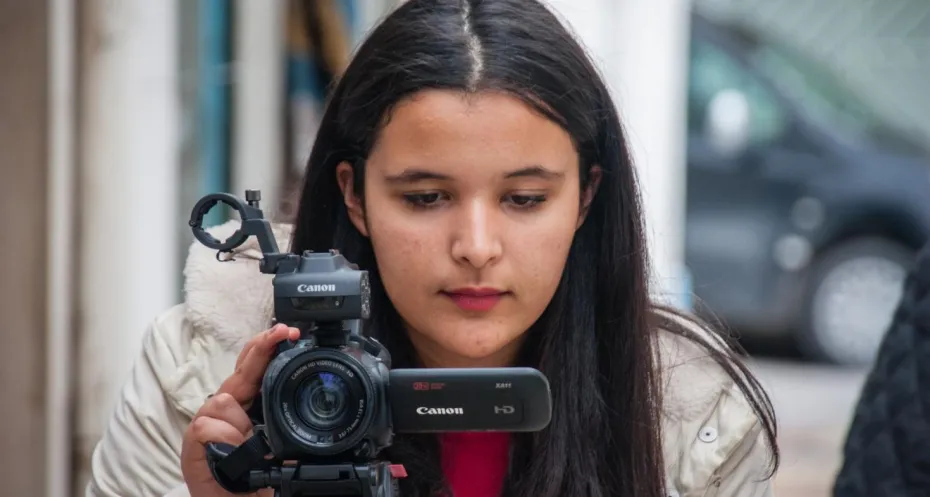
Journalism training gives a voice to young people in Tunisia
Young people in Tunisia hardly participate in society and have very little control over their own future. They are also virtually absent from public debate. Together with local partner organisation, Al Khatt, Free Press Unlimited finally gives young people a voice in the media.
Despite the revolution in Tunisia, the situation for many young people is still hopeless. They are not taken seriously by older generations and feel socially excluded. Potential new unrest is constantly lurking. Self-immolation to protest against the social and economic situation in the country happens with alarming regularity and could turn into larger demonstrations.
In 2011, the Tunisian organisation, Al Khatt, launched an online platform for citizen journalism aimed at young people. On Jaridaty.net young people are given the space to place self-made videos and to steer their future in a positive way.
Free Press Unlimited has many years of experience in creating media for and by young people. We are now applying that expertise by training young people between the ages of 15 and 18, together with Al Khatt, in journalism skills such as storytelling, fact-checking and journalistic ethics.
The young people come from Sousse, Makhtar, Beja and El Kef: cities that are not usually covered in the media, never mind the young people from these areas. The training enables them to make high-quality video productions. This way, they can actively participate in the public debate and demand a voice in decision making.
Young people speak out: also offline and on TV
To give the dialogue between young and old an extra boost, Al Khatt organises public meetings. Together with the young journalists, neighbours and local policy makers look at their videos on work opportunities, the future of young people in the community and cultural development. Afterwards they discuss what is going on, what needs to change and how to tackle that.
One of the largest national television channels in Tunisia, El Wataniya 2, has also joined this project. Al Khatt will teach the channel’s producers how to make programmes for and about young people. Together with the television channel, the organisation is setting up a new weekly programming, with the videos made by the participating young people playing an important role. In this way, locally produced stories get a nationwide outreach and the voices of the young people penetrate all corners of the country – including the capital.
More resilient in future
For information and news about Tunisia, young people mainly turn to the internet. Here, they often find incorrect or heavily biased information, frequently from sources such as radical groups. By making stories themselves in this project, the young people learn about the rules of journalism and fake news. They are better able to distinguish propaganda from reliable news and therefore become more resilient against inflammatory reporting.
photo: Freepressunlimited/ Loes Witschge